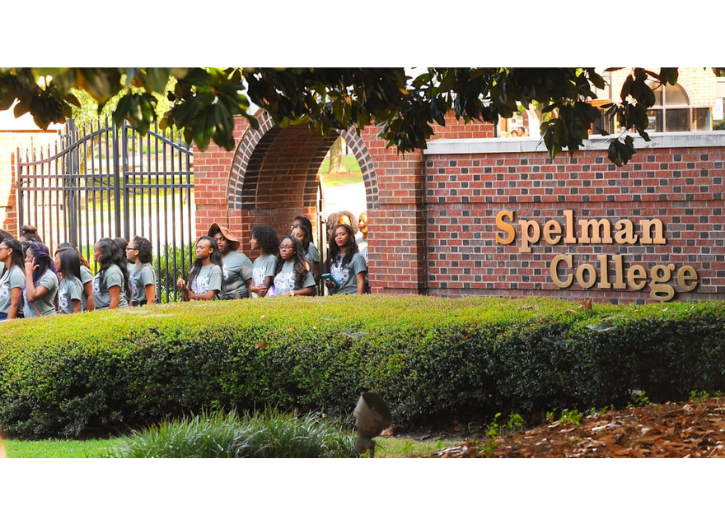Spelman College is a private, historically Black, women’s liberal arts college in Atlanta, Georgia. It is a founding member of the Atlanta University Center academic consortium. Founded in 1881, Spelman awarded its first college degrees in 1901.
The years 1910 to 1953 saw great growth and transition for the seminary. Upon Giles’ death, Lucy Hale Tapley became president. Although the college was a stride in and of itself, at the time, neither the founders nor the current administration had interest in challenging the status quo of young women as primarily responsible for the family and the home. Tapley declared: “Any course of study which fails to cultivate a taste and fitness for practical and efficient work in some part of the field of the world’s needs is unpopular at Spelman and finds no place in our curriculum.” The nursing curriculum was strengthened; a teachers’ dormitory and a home economics building were constructed, and Tapley Hall, the science building, was completed in 1925. The Granddaughters’ Club, a club for students whose mothers and aunts had attended Spelman was also created, and this club is still in existence today.
In September 1924, Spelman Baptist Seminary officially became Spelman College. Florence Matilda Read assumed the presidency in 1927. Shortly thereafter, Spelman entered into an “agreement of affiliation” with nearby Morehouse College and Atlanta University by chartering the Atlanta University Center in 1929. Atlanta University was to provide graduate education for students, whereas Morehouse and Spelman were responsible for the undergraduate education. At a time during which Black students were often denied access to graduate studies at predominantly white southern research universities, access to Atlanta University allowed the undergraduate students at Morehouse and Spelman immediate access to graduate training.
In 1927, one of the most important buildings on campus, Sisters Chapel, was dedicated. The chapel was named for its primary benefactors, sisters Laura Spelman Rockefeller and Lucy Maria Spelman. The college had also begun to see an improvement in extracurricular investment in the arts, with the organization of the Spelman College Glee Club in 1925, inauguration of the much-loved Atlanta tradition of the annual Spelman-Morehouse Christmas Carol Concert and smaller events such as the spring orchestra and chorus concert, the Atlanta University Summer Theater, and the University Players, a drama organization for AUC students.
The school also began to see more of a focus on collegiate education, as it discontinued its elementary and high school divisions. In 1930 the Spelman Nursery School was created as a training center for mothers and a practice arena for students who planned careers in education and child development. Spelman celebrated its 50th anniversary in April 1931. This milestone as accompanied by the construction of a university library that was shared amongst the Atlanta University Center institutions, and the center continues to share a library to this day.
The school continued to expand, building and acquiring more property to accommodate the growing student body.







Add Comment